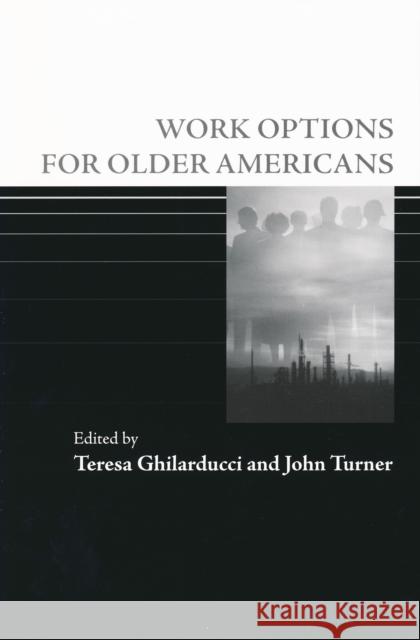Work Options for Older Americans » książka
Work Options for Older Americans
ISBN-13: 9780268029708 / Angielski / Miękka / 2007 / 392 str.
"While demographic forces make it inevitable that social institutions that encouraged workers to retire in their early sixties must change, this book shows that how we make these changes will have substantial implications for the risk of poverty and the general level of economic well-being of older populations. Its theme is that policy changes that encourage those able to work at older ages to do so must not come at the expense of our current system's protection of those less able to work. This is an important book for those interested in understanding how recent changes in the United States retirement system are impacting the employment and economic well-being of older workers." --Richard V. Burkhauser, Sarah Gibson Blanding Professor of Policy Analysis and Management, Cornell University "The editors have done an excellent job of compiling some very valuable and interesting papers on working longer. With improvements in health and life expectancy, the decreasing physical requirements of work, and our financing shortfalls, the options of working longer, phased retirement, and more flexibility for retirement ages in retirement plans can be winners. In particular, I found the Introduction's synopsis of the papers by itself worth the price of the book." --Ron Gebhardtsbauer, American Academy of Actuaries
While mandatory retirement has been eliminated in the United States, a myriad of policies and practices surround pensions, social security, tax law, labor contracts, and health benefits, all of which may have an impact on an older worker's decision to work or retire and an employer's decision to retain and train an older worker. In "Work Options for Older Americans," Teresa Ghilarducci and John Turner assemble a critically important volume that systematically addresses many of the issues considered on a daily basis by employees and employers. "Work Options for Older Americans" brings together discussion of these issues by well-known economists and scholars in other fields, from the Government Accountability Office, the AARP Public Policy Institute, the U.S. Department of Labor, and academia. The book contains eleven articles, along with commentary, that deal with issues of employment opportunity and constraints for older persons, pension types and coverage, retirement choices, and public policies that promote or hinder either retirement or employment of the elderly. Contributors present effective ways to prepare for this unprecedented growth in the number of older workers. In the introduction, Teresa Ghilarducci and John Turner identify how the labor market changes dramatically as workers age and how these changes affect the ongoing bargaining between employers and workers. The question is, are the options that workers want the same as those that employers offer?











